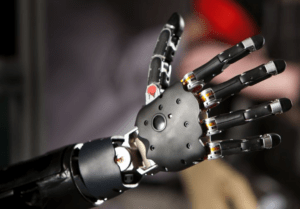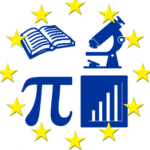Silvestro Micera, a professor of translational neuroengineering at Ecole polytechnique fédérale de Lausanne in Switzerland, has spent the past 20 years figuring out how to make better prostheses for people with amputated limbs. He became interested in prostheses as a teenager.
I loved comics and science fiction movies – things like Doctor Octopus from Spiderman,’ he said. ‘In the beginning, it was the scientific interest of a teenager, but then it became an idea of helping people to get back what they’ve lost
European projects at the forefront
A european project that he led, called NEBIAS, developed a robotic hand that provides sensory feedback to the user. The technology behind it was ground-breaking – an implant positioned under the skin that connects to the person’s nerves. It transmits information from sensors in the hand by stimulating the nerves with electrical signals. This allows, for instance, a person to tell if an object they are holding is soft or hard.
Through a follow-up european project called SensAgain, Prof. Micera worked to further develop the technology and take it to market.
To get the technology into practice as quickly as possible, he switched focus to developing prosthetic legs rather than hands, as leg amputations affect more people. Last year, he published a paper showing how sensory feedback in prosthetic legs can help people.
Evidence
To scale up this work, he set up a company called SensArs, being funded through a european project called GOSAFE, with the aim of getting more evidence of the impact that the prosthesis makes on people’s lives.
With only a handful of people testing the prosthesis, it is difficult to draw broad conclusions, but the early signs have been encouraging.
Making a prosthesis that feels like a part of a person is one of the biggest challenges for improving quality of life for amputees. Aside from the need to have sensory feedback, it is very complex to replicate the muscles that control a limb so that a prosthesis feels natural. In the hand alone, for instance, there are more than 30 individual muscles to control it.
Prof. Di Pino is running a european project called RESHAPE, which is testing new ways to connect a controllable hand to the body. The ultimate goal is for the amputee to feel complete, and this comes back to how the body is represented in the mind.
The advances made through these research projects will still take many years before they can help improve prostheses. However, the insights and technology developed could have a much broader impact.







Leave a Reply